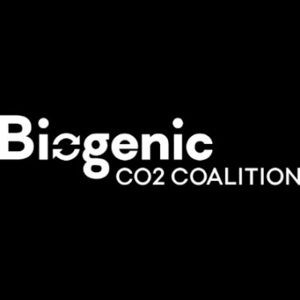Letter urges EPA to recognize de minimis nature of biogenic CO2
Energy Disrupter
ADVERTISEMENT
A group of 13 members of Congress sent a letter to U.S. EPA Administrator Andrew Wheeler on Oct. 19 urging the agency to promulgate a rulemaking recognizing the de minimis nature of biogenic carbon emissions from agricultural crops when they are used to make food, fuel, beverages or bioproducts.
“The common-sense clarification would align EPA policy with the biogenic emissions standards applied by every other regulatory authority worldwide and acknowledge that biogenic carbon emissions from agricultural feedstocks are different than carbon from fossil fuels,” the members of Congress wrote.
The letter stresses that the with the exception of the EPA, environmental regulatory authorities worldwide distinguish between biogenic carbon emissions from agricultural crops and carbon emissions from fossil fuels. As a result, economies overseas have a substantial competitive advantage for construction, modernization and improvement of facilities relative to those here in the U.S. According to the representatives, EPA’s policy on biogenic carbon emissions has stalled investment in the U.S. bioeconomy due to uncertainties about the permitting process, litigation risks and costs for new manufacturing and processing facilities.
“By clarifying the insignificant nature of biogenic carbon emissions from agricultural crops, EPA can open the door for increased production of sustainable, plant-based materials and a wide range of environmental benefits in the United States,” the representatives wrote. “Expanding production of materials made from plants promises to substantially reduce GHGs, improve water quality, divert waste from landfills, and augment soil health. Accelerated production of sustainable materials will bring huge environmental benefits to the U.S. and our rural communities.
“Growing the U.S. bioeconomy offers a brighter future for rural America that will bring jobs and opportunities to the American heartland, offer American consumers more and better sustainable products, and support America’s farmers and ranchers,” they continued. “For over 10 years, EPA has stated an intention to eliminate regulatory barriers preventing that potential from becoming reality. We understand that on [Sept.] 9, agriculture stakeholders submitted a petition for rulemaking to EPA that includes a detailed scientific and legal basis for establishing a de minimis standard for agricultural crops. We urge EPA to engage with relevant stakeholders to identify the best source of action for promulgating this much needed regulatory standard.”
The Biogenic CO2 Coalition applauded the letter. “As support for this critical reform continues to build, it is encouraging to see this display of bipartisan leadership. Removing this regulatory burden based on scientifically-backed evidence opens opportunities for American farmers nationwide to develop more renewable, sustainable products, boosting rural economies, the environment and the broader bioeconomy,” said Thomas Parks, Biogenic CO2 Coalition spokesperson. “A de minimis standard would invigorate the American heartland and bring more economic and industry growth to rural America, creating thousands of jobs and hundreds of millions in wages for American workers in the food and agriculture sectors.”
The letter is signed by Reps. Rodney Davis, R-Ill.; Collin Peterson, D-Minn.; Adrian Smith, R-Neb.; Susan Brooks, R-Ind.; Angie Craig, D-Minn.; Jim Baird, R-Ind.; Kelly Armstrong, R-N.D.; John Shimkus, R-Ill.; Mike Bost, R-Ill.; Darin LaHood, R-Ill.; Adam Kinzinger, R-Ill.; Mike Turner, R-Ohio; and John Rose, R-Tenn.
A full copy of the letter is available on Davis’s Twitter account.
















